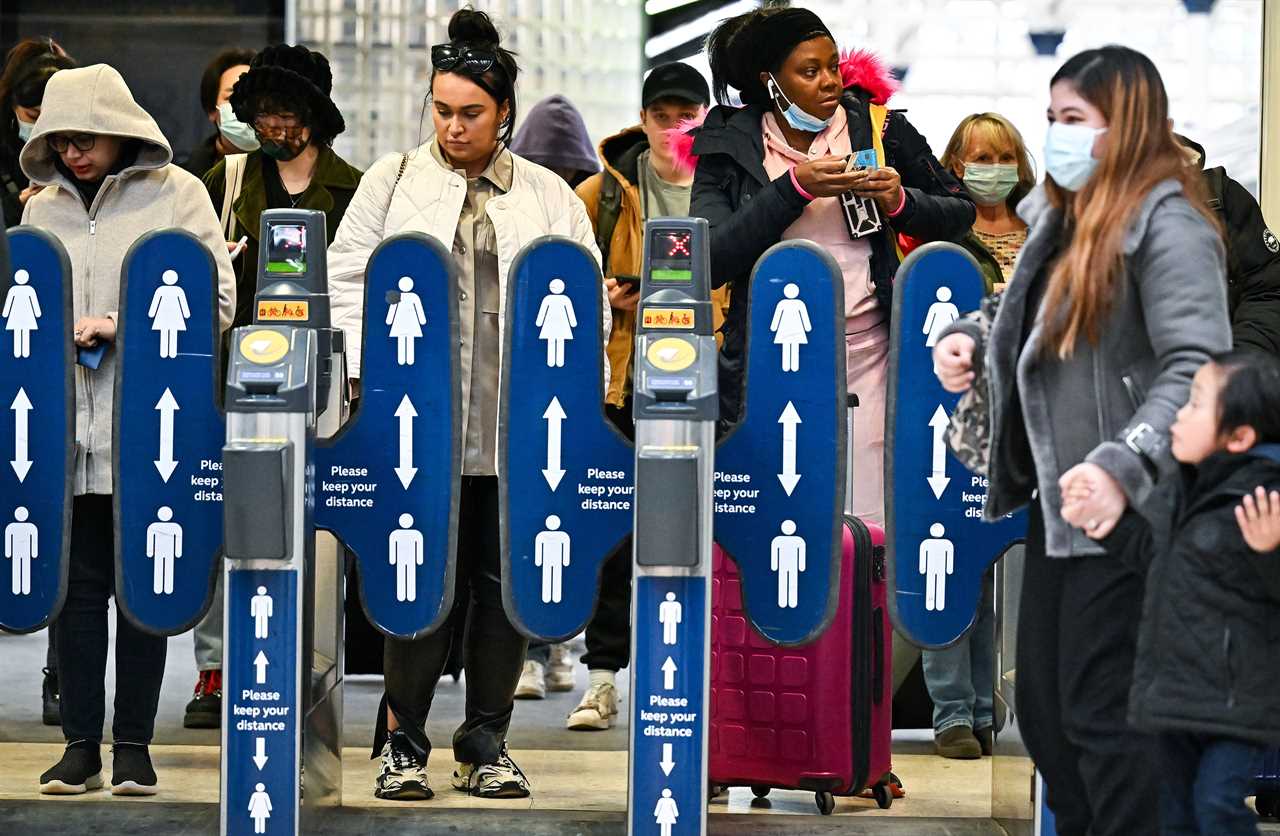DAILY coronavirus cases in the UK have fallen by 49 per cent in the last month, new figures show.
A further 39,656 people tested positive for the bug today as Brits prepare for a major rule change tomorrow.

Infections are down from 78,317 daily cases this time last month and down 26 per cent on last week when 54,218 people tested positive.
Sadly, a further 164 people have died within 28 days of a positive test, that’s down 17 per cent on this time last week, but up from the 75 daily deaths recorded on January 23.
It comes as isolation rules are set to be scrapped this week, after the Prime Minister declared we can move to the next phase in the pandemic.
On Monday, Boris Johnson announced he’s “finally giving people back their freedom” in the House of Commons.
Mr Johnson then outlined his vision for a freer Britain, detailing fresh plans for isolation rules and testing.
He added: “It is a reminder that this virus has not gone away, but because of the efforts made by this country over the past two years we can now deal with it in a very different way.
“So we move from government restrictions to personal responsibility.
“While the pandemic is not over we have now passed the peak of the Omicron wave. the link between infection and severe disease substantially weakened.”
From tomorrow people in England who have the coronavirus will no longer be legally obliged to self-isolate, two years after the rule came into force.
Subject to Parliamentary approval, the Government is axing the legal obligation to isolate after a positive test from February 24.
It means you do not legally have to stay indoors for at least five full days.
The Government will also no longer ask vaccinated contacts, and those under 18, to test for seven days, and will remove the legal requirement for contacts who are not vaccinated to self-isolate.
Meanwhile, there will be an end to routine contact tracing.
The official public health advice will remain that people testing positive for the virus should stay at home for five days.
But crucially, this guidance will not be enforced by law.
Fines for non-compliance with quarantine rules of up to £10,000 will cease to be enforceable.
‘HIGH RATES’
Speaking at a Downing Street Press conference, Professor Sir Chris Whitty said the advice was now in line with other viruses, like flu and norovirus.
He said: “As we look at the next weeks, we still have high rates of Omicron.
“I would urge people in terms of public health advice, and this is very much the Government’s position, that people should still if they have Covid try to prevent other people getting it and that means self-isolating.
“If you had norovirus we would give exactly the same public health advice.”
While Omicron is a milder variant, it’s still important that you get vaccinated in order to protect the vulnerable from getting the bug and becoming severely unwell.






